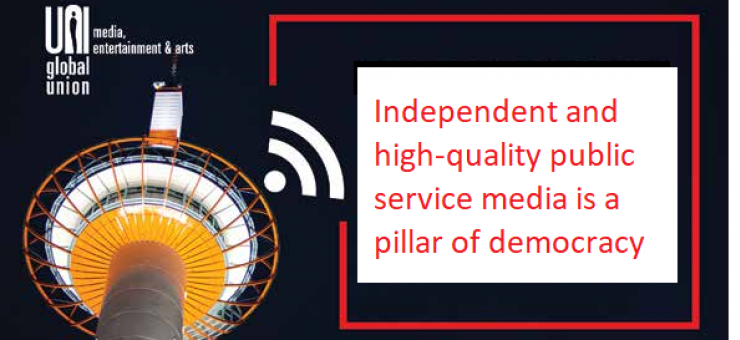New legislation threatens independence of public service media in Lithuania

The Lithuanian Trade Union of Broadcasting Workers and its global union, UNI MEI are concerned with the impact on new legislation that threatens the political independence of public service media in Lithuania.
The majority of the Lithuanian parliament “Seimas” recently launched a legislative process seeking to amend the Law on regulating the public broadcaster Lithuanian Radio and Television, LRT. The parties of the government coalition aim at reducing the power and the scope of the LRT Council. Further, the draft legislation seeks to shorten the terms of office of its members and change the procedure of appointment. Finally, the proposed law would imply that the nomination of the LRT Council would coincide with the term of Parliament.
The global community of broadcasting unions affiliated to UNI Global Union is concerned that the proposed changes to the governance structure, the process of nomination and the term of office undermine the editorial and political independence of LRT and its financial sustainability.
William Maunier, President of the European region said “We strongly believe that nominations to governance positions in LRT shall not be used to exert political influence over LRT. Further, we stress that the governance structure and governing environment need to guarantee the independence and accountability of the public broadcaster”.
In a letter to the LRT Workers Trade Union, UNI MEI expressed its solidarity with colleagues in LRT and called on the Lithuanian authorities to refrain from legislative action, which would harm freedom of speech, the independence of the media and the fulfilment of the public service mission of the LRT.
UNI MEI urges the Lithuanian Parliament to involve all stakeholders including the LRT management and trade union in any review of the governance structure of the LRT. We propose draw from best practice in the European Union that guaranty independence, accountability and sustainability of public service media and promote access of citizen to a quality public media service. The separation of supervision and direction of LRT is key for the democratic nature of public service media in Lithuania.

